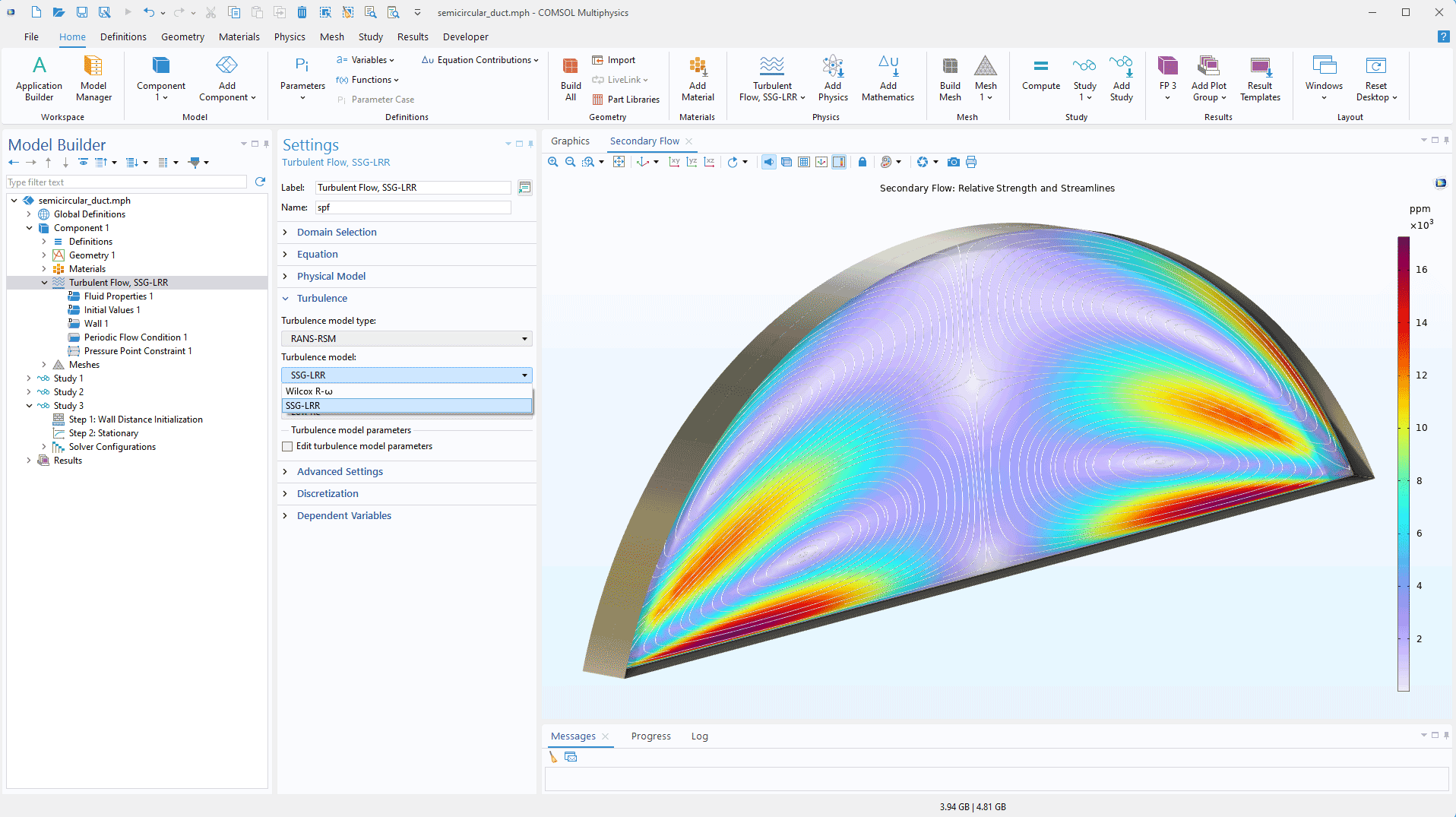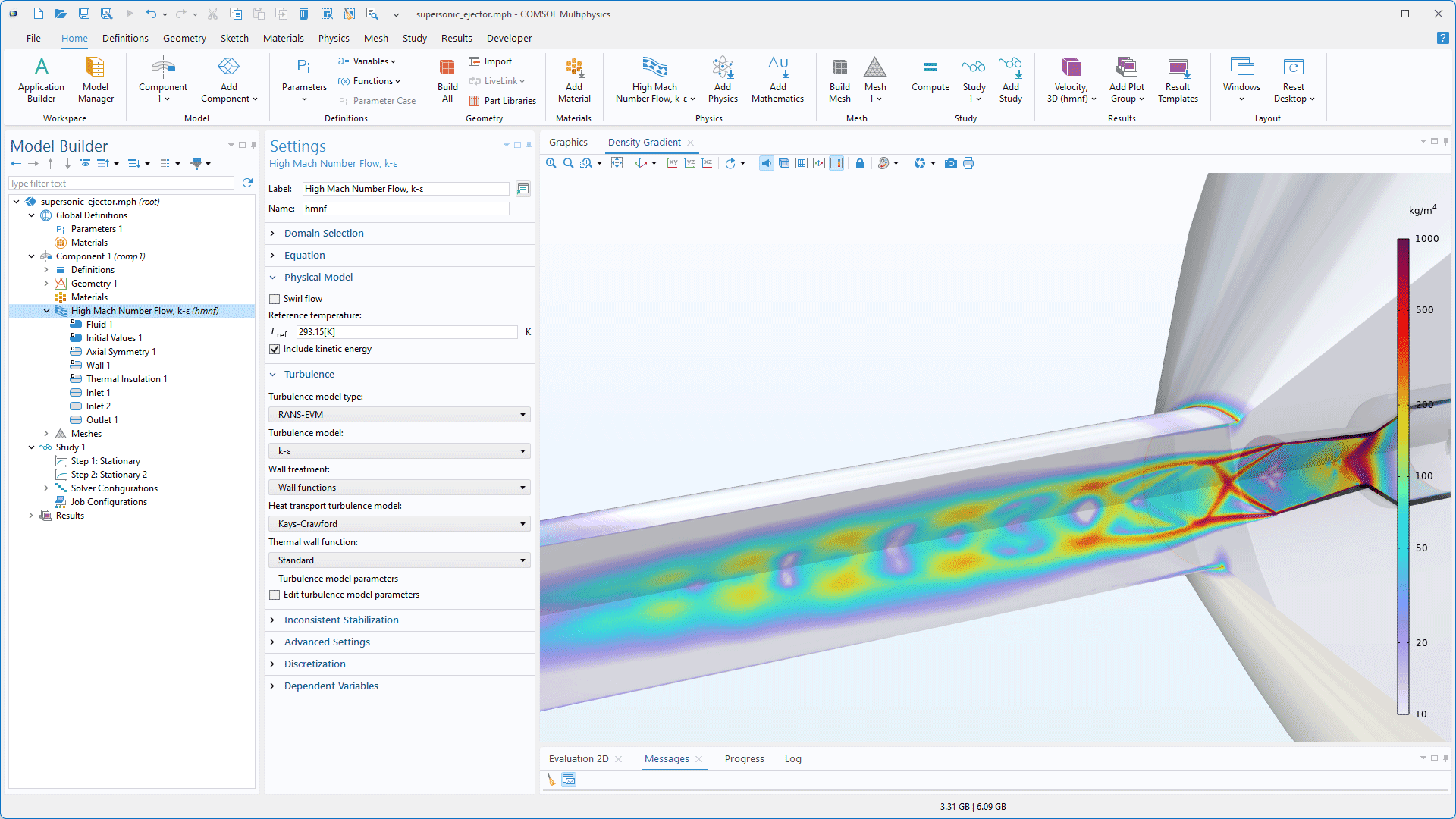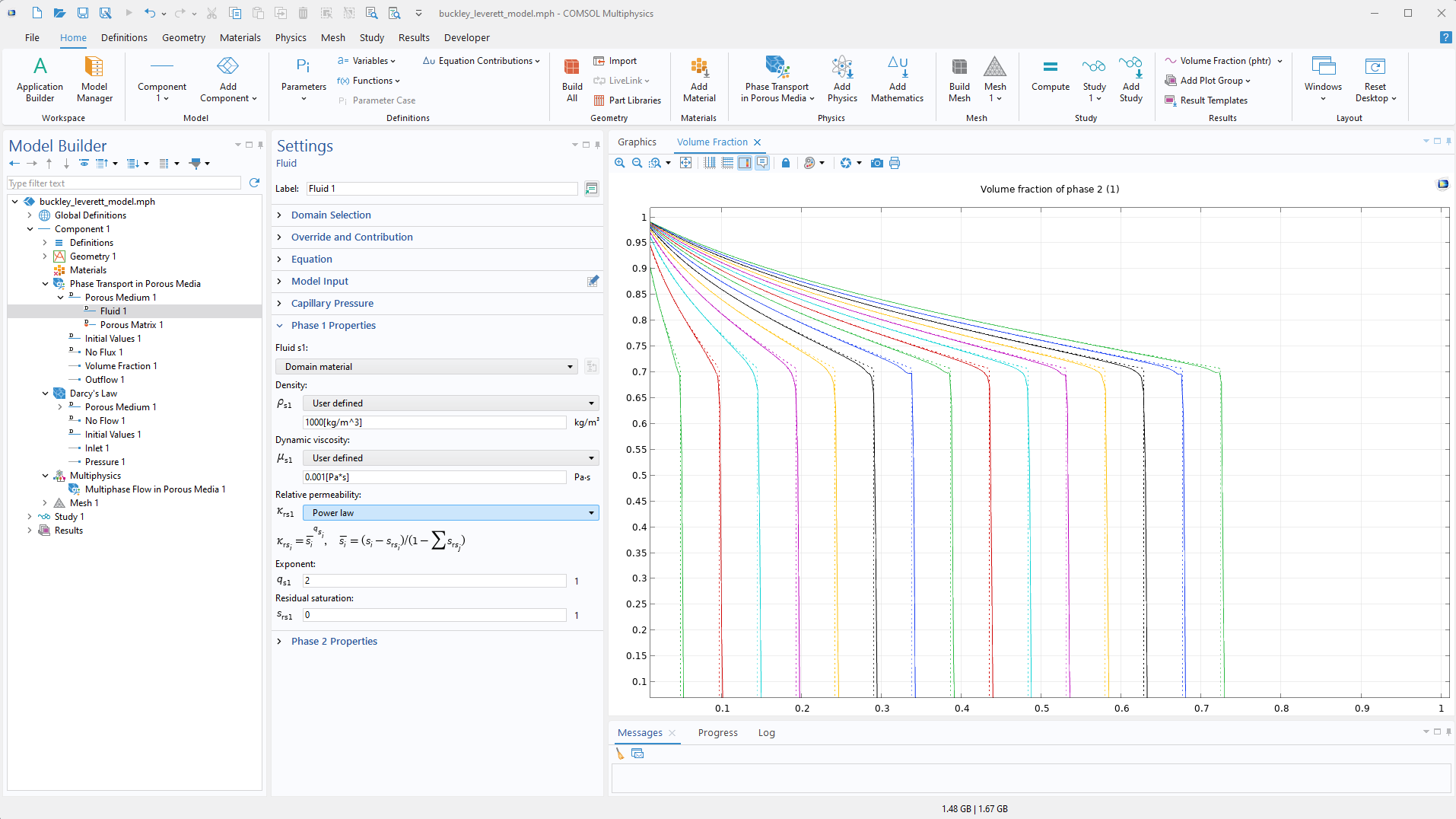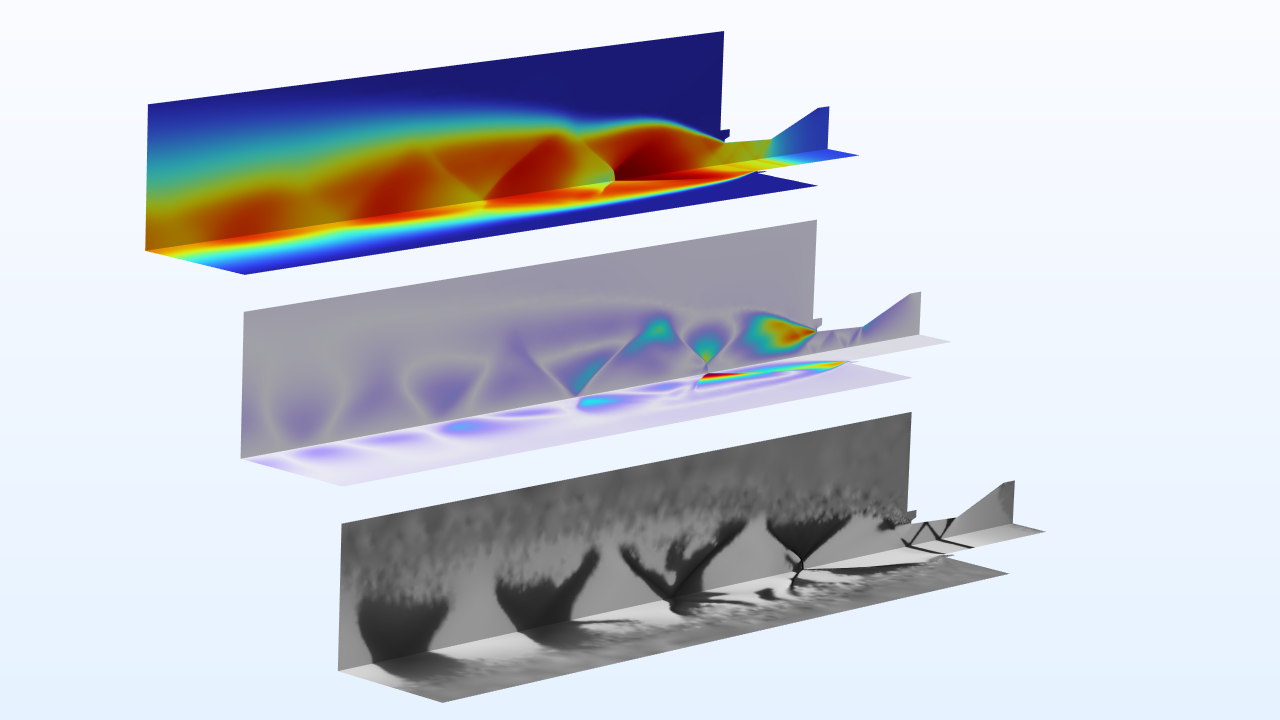CFD 模块更新
雷诺应力湍流模型
新增的湍流,Wilcox R-ω 和湍流,SSG–LRR (Speziale–Sarkar–Gatsk/Launder–Reece–Rodi) 接口引入了更高阶的闭合模型,尤其适用于模拟管道中的二次流动、具有明显旋涡或均匀旋转的流动,以及平均流线曲率较大的流动。与涡黏模型 (EVM) 不同,这些接口并不假设雷诺应力与平均应变率一致,因此在复杂流动条件下能够提供更精确的结果。Wilcox R-w 和 SSG–LRR 两种雷诺应力模型的主要区别在于对压力-应变项和远场比耗散率的建模方式。
分散多相流中的剪切诱导迁移
在高浓度悬浮液中,不可逆的颗粒碰撞会导致颗粒向剪切速率较低的区域迁移,这一现象在颗粒分级和微滤工艺中发挥着重要作用。以中性浮力混合物的压力驱动通道流为例,颗粒通常会在通道中心聚集。现在,混合物模型 多物理场耦合中新增了包含剪切诱导迁移 选项,支持多种物质,并能增强仿真结果的精度。浓悬浮液的两相流建模教学案例现已更新,以便采用这一新特征。
高马赫数流动中的动能和亚音速入口条件
为了提高能量守恒的准确性,高马赫数流动 接口中新增了包含动能 选项,能够更准确地描述黏性功。尽管这种差异通常不大,但在特定情况下,该选项能够显著提升能量守恒效果。此外,针对入口马赫数较低的情况,例如喷射器等内部流动设备,入口 特征中新增了一个亚音速 选项,作为基于特性 选项的低计算需求替代方案。
“相传递”接口新增功能
相传递 接口新增了一个边界质量源 边界条件,能够计算因边界上的反应或其他物理过程而引起的不同相的消耗或生成情况。例如,当相传递与表面反应耦合时,设置边界条件将变得更加容易。此外,为了统一不同物理场接口的术语,新的流体 和多孔介质 节点取代了相传递 接口中原有的相和传递属性 节点及相和多孔介质传递属性 节点。
相对渗透率的幂律选项
多孔介质相传递 接口中的多孔介质 特征新增了一个幂律 选项,简化了基于幂律表达式的相对渗透率的设置过程,可用于在多孔介质仿真中快速设置和模拟渗透特性。
“化学物质传递”接口中的结果模板
绘制实用且具有视觉吸引力的反应体系绘图通常需要花费大量时间,因为涉及多种反应物,需要绘制多个浓度场。为了节省时间,化学物质传递 接口中新增了多个结果模板,现在可以在图形 窗口中同时包含多达四种物质浓度的绘图阵列模板。这些结果模板 适用于所有化学物质传递 接口,不受附加模块的限制,特别适用于化工模块、“多孔介质流模块”、“地下水流模块”和“微流体模块”中的多组分传递接口。
新的教学案例
COMSOL Multiphysics® 6.3 版本的“CFD 模块”引入了一个新的教学案例。




